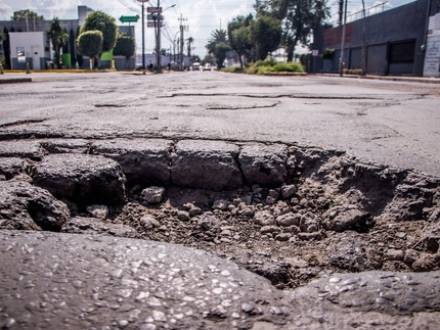Can I Sue If Poor Road Conditions Caused My Accident in Illinois?
 When driving through central Illinois, you might face everything from potholes to crumbling shoulders to unclear construction zones. Poor road conditions are more than just an inconvenience. Unfortunately, they can lead to serious crashes involving personal injuries, vehicle damage, or even fatalities.
When driving through central Illinois, you might face everything from potholes to crumbling shoulders to unclear construction zones. Poor road conditions are more than just an inconvenience. Unfortunately, they can lead to serious crashes involving personal injuries, vehicle damage, or even fatalities.
If you were in a car accident that was caused by a dangerous road condition, you might have grounds to take legal action. In certain situations, you may be able to sue the party responsible for maintaining the road. A knowledgeable Decatur, IL personal injury lawyer can review your case and advise you on how this might apply to your accident.
Who Is Responsible for Road Conditions in Illinois?
In Illinois, different government entities are responsible for maintaining roads, depending on where the road is located. City streets are usually maintained by the local municipality (such as the City of Champaign or Decatur). County roads are typically the responsibility of the county’s highway department. On the other hand, state highways like I-74 or U.S. Route 51 fall under the care of the Illinois Department of Transportation. Before filing a claim, it is important to know who is legally responsible for maintaining the road where your crash occurred.
What Road Conditions Could Cause Car Crashes?
To have a valid injury claim, the road condition must have posed a hazard, and the responsible party must have failed to fix it within a reasonable time or failed to warn drivers. Examples of dangerous road conditions that might lead to a crash and a lawsuit include:
-
Large, unrepaired potholes
-
Poor drainage leading to standing water or ice
-
Faded or missing lane markings
-
Improperly marked construction zones
-
Eroded shoulders or drop-offs
-
Defective or missing guardrails
-
Inadequate signage near curves or intersections
These hazards can cause drivers to lose control, veer into oncoming traffic, or be involved in multi-vehicle collisions.
Can You Sue the Government in Illinois?
You can file a claim against a city, county, or the State of Illinois under the Illinois Court of Claims Act or the Local Governmental and Governmental Employees Tort Immunity Act, but there are strict rules, including:
Strict Deadlines
Some claims must be filed within one year, and a formal notice of injury may need to be submitted even earlier.
Immunity Laws
There are limits to the things you can sue for. Governments are not liable for every hazard, especially if they did not know about one or if they took reasonable steps to warn drivers.
Burden of Proof
You must prove that the government entity was aware of the hazard or should have known about it and failed to take appropriate action.
What If Another Driver Also Contributed to the Crash?
It is common for multiple factors to be involved in a collision. For example, another driver may have been speeding or failed to brake in time, but if that driver swerved or lost control because of a deep pothole or poorly marked construction zone, the condition of the road could still be a contributing cause.
Illinois follows a modified comparative fault rule under 735 ILCS 5/2-1116, which means you can still recover damages as long as you are not more than 50 percent at fault. Your compensation will be reduced in proportion to your share of fault.
Contact a Champaign, IL Personal Injury Lawyer
If you were injured in a crash caused by unsafe road conditions, you may have a claim against the agency responsible for maintaining the road. The experienced Bloomington, IL car accident attorneys at Kanoski Bresney offer free consultations and can help you determine your legal options. Call us at 888-826-8682 to learn more.









